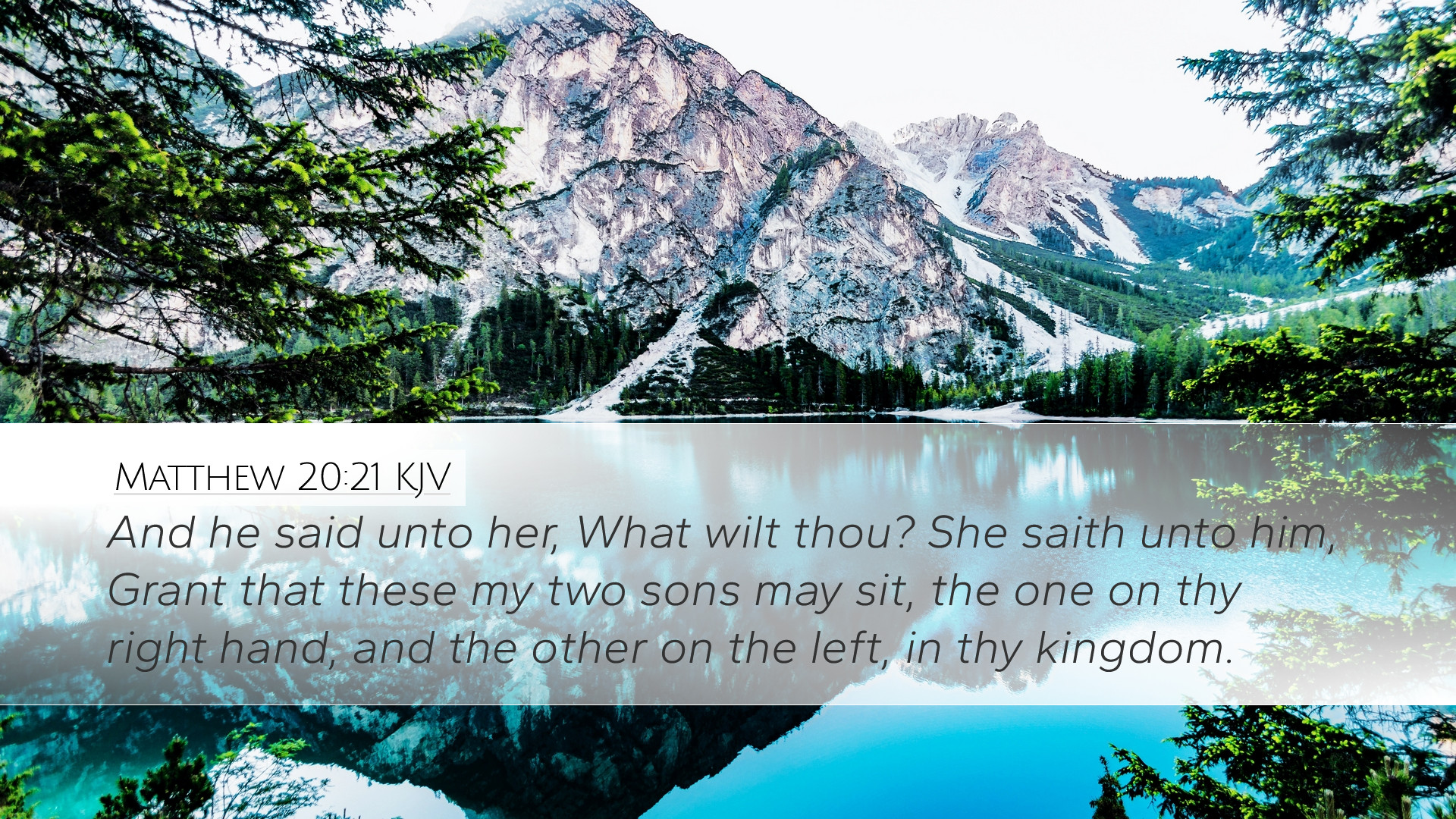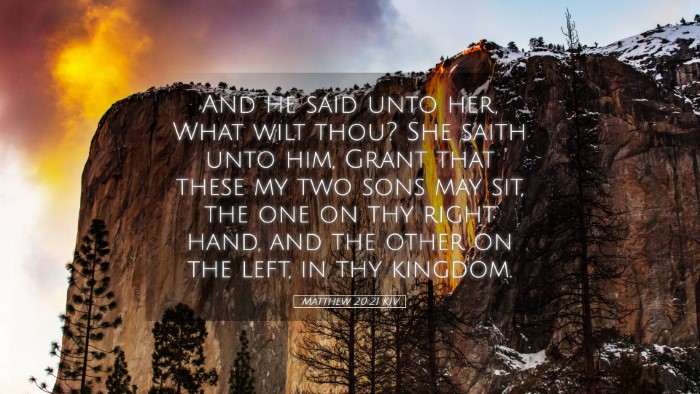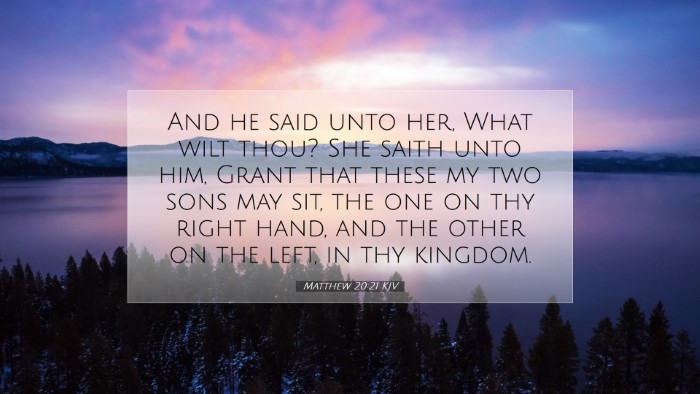Bible Commentary on Matthew 20:21
Verse Reference: Matthew 20:21 - "And He said to her, 'What do you wish?' She said to Him, 'Grant that these two sons of mine may sit, one on Your right hand and the other on the left, in Your kingdom.'
Context and Background
The request made by the mother of James and John, the sons of Zebedee, takes place within the broader narrative of Jesus’ teachings and He prepares His disciples for His impending crucifixion. This moment reveals the aspirations and misunderstandings of the disciples regarding the nature of Jesus' kingdom.
Historical Insight
During this time, the expectation of a Messiah was often intertwined with the hope of political liberation from Roman rule. The disciples, influenced by their cultural context, sought positions of power and prestige within this new kingdom.
Commentary Insights
Matthew Henry's Commentary
Henry notes that the ambition of James and John's mother reflects a common human desire to be exalted and to seek honor in the presence of authority. He emphasizes that this request reveals a diminutive understanding of what it truly meant to be part of God's kingdom. Henry asserts:
"It is a little thing that a man should suffer for Christ, if he may sit with him as a king; but it is a great thing that he should serve Him as a servant."
Henry also cautions against seeking glory in this world, emphasizing that true greatness in the kingdom of God is found in humility and service.
Albert Barnes' Notes
Barnes provides a detailed examination of the request made by the mother of Zebedee's children. He points out that the woman’s desire for her sons to occupy positions of honor reflects a serious misunderstanding of the nature of Christ's kingdom, which he emphasizes is spiritual rather than temporal. Barnes suggests:
"They were looking for a kingdom to be established in this world; they did not understand that the kingdom of Christ was not of this world... The disciples must be prepared to suffer, rather than to rule."
Barnes also notes the importance of the response Jesus gives, as He asks the disciples if they are able to drink from the cup He is to drink, indicating that true discipleship entails suffering and sacrifice.
Adam Clarke's Commentary
Clarke interprets the action of the mother not merely as presumption but as an expression of faith, believing Jesus would establish a kingdom. He also emphasizes that the positions sought by the two disciples are predicated upon their understanding of status in the coming kingdom.
"The request made by this woman was made with a belief that the kingdom of Christ would soon be established on earth, and she articulated what many others were likely thinking."
Clarke reflects on how Jesus redirects the conversation, focusing on the implications of service rather than the allure of power.
Theological Implications
The exchange in Matthew 20:21 serves as an important lesson for contemporary believers, illustrating the contrast between human ambition and divine purpose. The requested positions of authority are challenged by Jesus, who emphasizes that His kingdom operates on principles contrary to worldly systems of power.
- Servanthood: True greatness is demonstrated through humility and service (Matthew 20:26-27).
- Suffering: Discipleship entails a willingness to endure hardships (Matthew 20:22).
- Divine Authority: All authority belongs to Christ, and positions in His kingdom are determined by His sovereign will rather than human ambition.
Application for Pastors and Theologians
In light of Matthew 20:21, pastoral leaders and theologians are encouraged to reflect on the nature of leadership in the church. The temptation to seek power must be avoided, instead fostering an environment where followers of Christ are encouraged to serve one another selflessly.
Furthermore, this passage highlights the necessity of teaching congregations the importance of understanding the cost of discipleship, emphasizing that the call to follow Christ is often a call to sacrifice.
Conclusion
Matthew 20:21 serves not only as a narrative about the request by the disciples' mother but as a foundational teaching about the nature of Christ's kingdom. Through this passage, we are reminded of the profound and often challenging call to follow Christ—a call to servitude, sacrifice, and a redefined understanding of greatness. Biblical scholars, pastors, and students of theology must grapple with the implications of this passage, ensuring that their leadership and discipleship reflect the values exemplified by Christ Himself.


